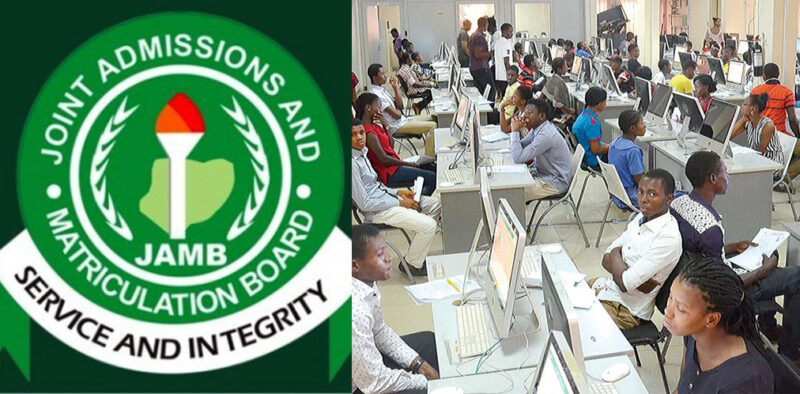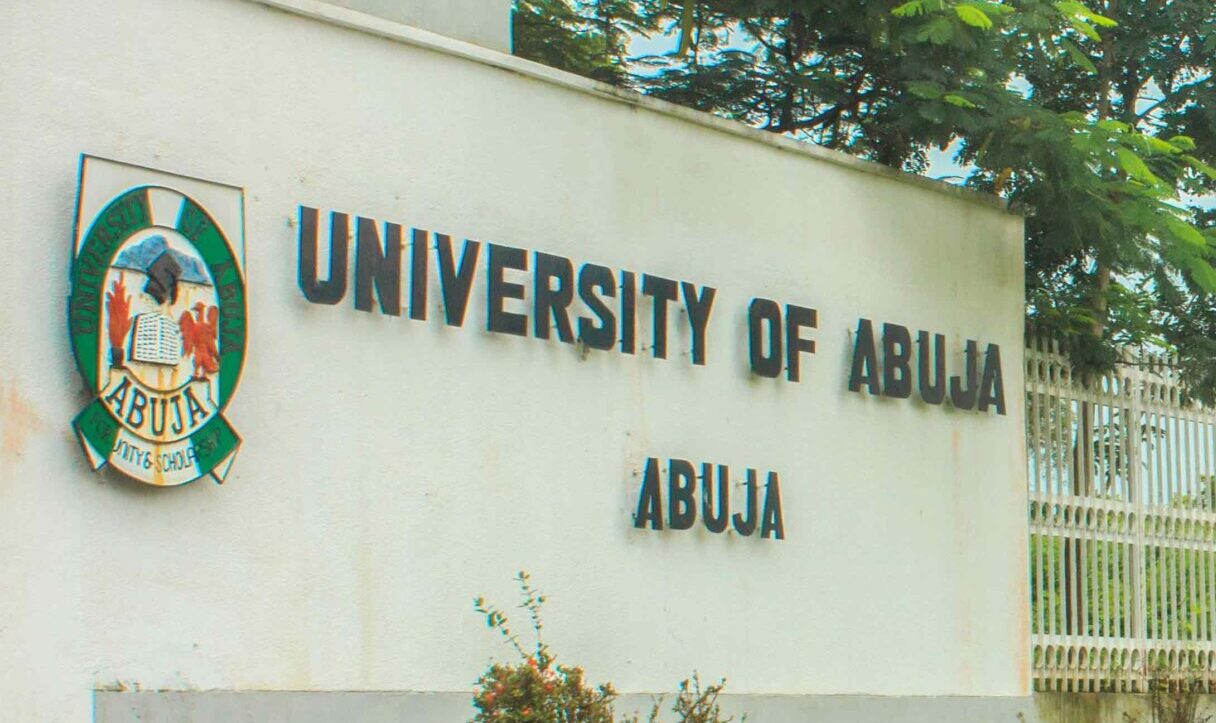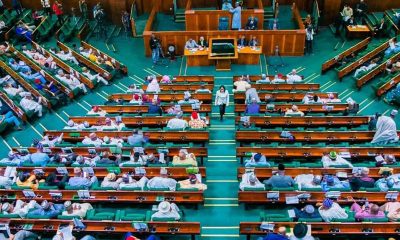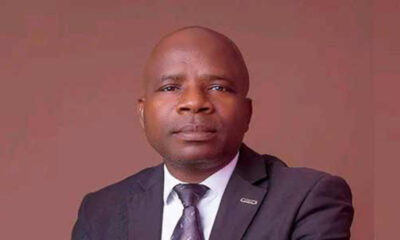Education
BREAKING: Reps’ bill finally ends disparity between BSc/HND

…as NABTEB Act amendment bill passes second reading
A bill seeking a perpetual end to the dichotomy between the university degrees of Bachelor’s of Arts/Science, BA/BSc and the Higher National Diplomas, HNDs awarded by polytechnics have been passed into law in the House of Representatives.
Titled “A Bill for an Act to Abolish and Prohibit Dichotomy and Discrimination between First Degree and Higher National Diploma in the Same Profession/Field for the Purpose of Employment; and for Related Matters”, the bill was read for the third time which was the final stage of the law-making process at Tuesday plenary.
The next stage would be concurrence with the Senate before it will be transmitted to the Presidency for the presidential assent.
The bill stipulates some punitive measures against any form of discrimination against holders of HND.
The Implication of the piece of legislation is that the two certificates are now at par with each other.
The deputy majority leader, Hon. Peter Akpatason moved for the third reading of the Bill and it was seconded by Rep. Aishatu Dukku.
The Bill was later voted on and approved for the third reading.
READ ALSO:
- FG launches Nigeria’s e-passport in UK to ease application process
- First Bank too big for one person to own, says Emefiele
- TUC kicks as NNPC says petrol subsidy ends in Feb, petrol to sell @ N340/l
Detailing the equality of Degrees and HNDs, the bill stipulates that “Notwithstanding any provision in any legislation, circular, regulation or policy guideline, First Degree and Higher National Diploma shall be deemed construed and treated as equivalent qualification for the purpose of employment and career progression at workplace in the public and private sectors of the Nigerian economy.
“Any provision in-laws, enactments, instruments, circulars, scheme of service, directives, or policies by whatever name called, which is inconsistent with the provisions of this bill, shall to the extent of the inconsistency be null and void, and of no effect.
“Holders of the First Degree and the Higher National Diploma (HND) shall be given equal treatment and opportunity in career placements, career progression, admission to further studies and privileges whatsoever in consideration of status as graduates of Nigeria tertiary institutions of higher learning.”
The bill also prohibited discrimination between the Degree and HND.
“All forms of discriminations and or dichotomy between First Degree and Higher National Diplomas for the purpose of employment, transfer of service, conversion of cadre, career progression, promotion, and other related issues in the public and private sectors of the Nigerian economy is hereby abolished.
“No person, authority, entity (body or corporate) in whatsoever name call shall discriminate and or undertake any action in any form whatsoever which is misconstrued as and or intended to give any preferential treatment in favour of and/or against holders of the First Degree or the Higher National Diploma.
READ ALSO:
- R/Madrid’s Karim Benzema gets one-year sentence, €75,000 fine over sex tape case
- My father never recovered from NDLEA ordeal – Baba Suwe’s son
- Saraki announces plans to contest 2023 presidential election
“Any person or entity in the public or private sectors of the Nigerian economy who contravenes the provisions of this bill commits an offence under this bill and shall be liable upon conviction to a term of two years’ imprisonment or a fine of N1,000,000 or both.
“Any person or entity in the public or private sectors of the Nigerian economy who design, prescribe and or specify any guidelines, terms or conditions of employment, career progression, and or any other instrument by whatever name called in violation of the provisions of this bill shall be guilty of an offence under this bill and liable upon conviction to a term of 1-year imprisonment or a fine of N500,000 (five hundred thousand naira) or both”, it states.
Prescribing appropriate sanctions, the bill states that any person who induces or encourages any other person for the violation of any of the provisions of this bill shall be liable upon conviction to a fine of N500,000, imprisonment for a term not exceeding one year or to both.
It further states that where an officer of any entity in the public or private sector fails to comply with the provisions of its provisions, the person shall be guilty of an offence and liable upon conviction to an imprisonment term of six months or a fine of N500,000 or both.
“Where in any proceedings against any person for an offence under this bill, it is established that any action constituting an offence under this bill has been committed by an officer, it shall be presumed that the action was done with the motive or intent of committing an offence under this bill as the case may be until the contrary is proved,” it added.
In a related development, the House also passed for second reading, a bill seeking the amendment of the National Business and Technical Examinations Board Act.
Titled “A Bill for an Act to Amend the National Business and Technical Examinations Board Act, Cap. N12, Laws of the Federation of Nigeria, 2004 to Improve the Scope of the Board, to Undertake Contemporary Business and Technical Examinations in Line with the National Policy on Education, Provide the General Purpose of the Results, Certificate and Awards Issued by the Board; and for Related Matters”, the bill is sponsored by Professor Julius Ihonvbere from Edo State.
READ ALSO:
- Police rescue kidnapped Zamfara secondary school students, others
- EFCC arrests Fani-Kayode for ‘forgery’
At the plenary, Hon. Julius Ihonvbere moved for the second reading of the Bill and it was seconded by Rep. Aishatu Dukku.
Leading the debate on the general principle of the bill, Hon. Ihonvbere stated that the Bill seeks to amend the Act establishing the board to end the rejection of qualified students by employers.
He added that the Bill also seeks to ensure the development of technical and vocational education schemes in Nigeria.
Contributing to the debate, Hon. Abubakar Yunusa lauded the spirit of the Bill as it seeks to correct the victimization of vocational students.
He urged the House to speedily pass the bill to make their certificates duly recognized, adding that it will cease the burden of unemployment, as well as enhance entrepreneurship.
Similarly, Hon. Abdulrazak Namdas also hailed the bill, calling for the more national will to apply the skills of technical and vocational training in society.
The lawmaker also urged the expedient passage of the Bill to save the future of teeming Nigerian youth.
The Bill was eventually voted on, approved for second reading and referred to the House Committee on Basic Education and Services for further legislative action.
Vanguard
Education
FG threatens to stop funding tertiary institutions with poor performance

FG threatens to stop funding tertiary institutions with poor performance
The federal government has said the Tertiary Education Trust Fund (TETFund) will defund any non-performing centre of excellence it established eight years ago.
Professor Tahir Mamman, the Minister of Education, said the government will not continue to reward indolence by giving free money to institutions that are not doing what they are supposed to do.
The minister spoke while receiving two reports of TETFund’s ad hoc committees on Assessment/Review of TETFund Centres of Excellence and Operationalisation of Skills Development Special Intervention.
“The government is encouraging our scholars to simply rise to the occasion and deliver on their scholarship, what world class scholars do; and we are not going to reward indolence. We can’t be giving free money to institutions that are not doing what they are supposed to do.
“In terms of the skill, we want to raise the equipment level of those institutions, polytechnic and others so that they can provide all the skill set that we need in Nigeria in the highest quality that can service the country and internationally,” he said.
On his part, the Executive Secretary of TETFund, Arc Sonny Echono, said the fund will not continue to throw money away to centres that are not living up to expectations.
Echono disclosed that some centres have funds with TETFund that they have not accessed since inception.
“The funds are with us because we have not released until you reach a milestone, but while they have delayed in reaching those milestones, are causes of concerns.
The TETFund boss noted that the strategy for establishing centres of excellence was a very good one because TETFund realised that it didn’t have enough resources to improve all the facilities of all public institutions at the same time.
READ ALSO:
- Don’t impose assistants on Finidi — Udeze warns NFF
- Lagos issues 48hr quit notice to Ikoyi Towers’ illegal squatters
- Lagos issues 48hr quit notice to Ikoyi Towers’ illegal squatters
“The idea was to incubate, to have one centre, the right equipment, the right tools, the right faculty and experts, that would lead our efforts in research, in promoting scholarship at the highest level so that they can also inspire other centres.
“We are going to be pooling from other institutions within the area who want to do further research or who want to carry out any other exploratory study in those particular fields in those areas,” he said.
He said some of the centres have done fantastically well since inception, stating that a lot of them are doing innovations.
“Sokoto just came up with one major solution for us. For example, they were the ones that discovered this vaccine for Covid, in partnership with other institutions. Now we are also in the process of getting vaccines for Lassa fever and so many others.
“So, some are doing very well. And some have come up with prototypes that we now hoping to take to industries so that they begin to produce these goods and services,” he said.
On the non-performing institutions, he said, “If you were established five years ago and you are still at your infancy, you have not been able to provide modern laboratories, facilities for scholars to come and learn, we want to know why. But we don’t want to be arbitrary.
“So, it decided to look at some institutions to find out their relative positions in terms of the quality of their faculty, their reputation in certain courses and in certain areas and designated them as centres of excellence for those particular courses.
Earlier, the Committee on the Assessment/Review of TETFund Centres of Excellence, led by Prof Oyewale Tomori, in its report, decline to recommend any centre for upgrade
The report noted that most centres did not utilise their first seed grant of N150 million for the initial infrastructures required in the centres, and advised TETFund to provide some bail out funds to the centres to enable the proper take off of the centres.
“If the Centres are to achieve set objectives, TETFund in collaboration with institutions hosting the centres should ensure that Centre Directors are on full time assignment at the Centre.
“All Centres that are not performing well should be given six months moratorium as a way to prevail on them to refocus and achieve their true mandate after which a revisit will be conducted to determine their status and continue funding,” the committee recommended.
Also presenting the Report of the Advisory Committee on Operationalisation of TETFund Skills Development Special Intervention, the Chairman of the Committee, Dr. Nuru Yakubu, said the committee recommended polytechnics for TETFund Special Intervention according to zones.
“South-West: The five schools visited have shown preparedness except for the Polytechnic Ibadan because of the school leadership transition. It is therefore recommended that in 2024 the following two polytechnics should benefit; Federal Polytechnic, Ado-Ekiti, Ekiti State and Federal Polytechnic, Ede, Osun State for 2025 the committee recommends Federal Polytechnic, Ilaro, Ogun State and The Polytechnic Ibadan, if they can sort out their preparations.
“South-South: The committee recommends Port Harcourt Polytechnic, Rimuola, Rivers State, and Akwa Ibom State Polytechnic Ikot Osunaa for 2024 TETFund Special Intervention. For the year 2025, the committee recommends Delta State Polytechnic and another polytechnic to be identified
“South-East: The Institute of Management and Technology has been recommended for 2024 and for 2025, Abia State Polytechnic, Aba and Federal Polytechnic, Oko.
“North-East: The committee recommends Federal Polytechnic, Bauchi and Ramat Polytechnic, Maiduguri for 2024 Intervention and Adamawa State Polytechnic and Tatari Ali Polytechnic for 2025.
“North-West: 2024 Birnin Kebbi, Daura for 2025 Kano State Poly, Sokoto State Poly and North-Central: 2024 Nasarawa and for 2025 Lokoja and Ilorin.
FG threatens to stop funding tertiary institutions with poor performance
Education
Disclose top 2024 UTME scorers, lawyer tells JAMB

Disclose top 2024 UTME scorers, lawyer tells JAMB
An Abuja-based lawyer, Chief Chukwuma Nwachukwu, has taken action against the Joint Admissions and Matriculation Board (JAMB) for withholding information about the top scorers in the recently released 2024 Unified Tertiary Matriculation Examination (UTME) results. In response, Nwachukwu has invoked the Freedom of Information Act (FOI) against the examination body.
In a letter addressed to JAMB, Nwachukwu requested to be provided with the names and scores of the top 10 candidates in the 2024 UTME within seven days, as mandated by the FOI Act. He expressed dissatisfaction with JAMB’s decision to withhold this information despite providing a breakdown of candidates’ performance on April 29.
READ ALSO:
- Terrorist attack claims 24 lives in Katsina community
- Chicago priest blesses same-sex ‘spouses,’ says Fiducia Supplicans allows it
- Many dead, houses razed in Delta tanker explosion
Specifically addressing the Registrar General of JAMB, Prof. Ishaq Oloyede, Nwachukwu demanded: “The names and scores of the 10 best students and their respective performances in the above examination.”
JAMB recently announced that the results of 64,624 candidates were withheld while releasing the results of 1,842,464 candidates. Prof. Oloyede stated that the withheld results were under investigation for verification, procedural investigation, and alleged examination misconduct.
Furthermore, he revealed that 2,896 candidates were under investigation for verification, 4,594 for procedural investigation, and 57,056 for centre-based investigation in 18 centres across Edo, Akwa Ibom, Delta, and Kwara.
Disclose top 2024 UTME scorers, lawyer tells JAMB
Education
UniAbuja: ASUU declares indefinite strike over disagreement with varsity management

UniAbuja: ASUU declares indefinite strike over disagreement with varsity management
University of Abuja’s branch of the Academic Staff Union of Universities (ASUU) has declared an indefinite strike.
The union announced the decision on Thursday during a congress held at the permanent site of the institution.
A communique issued by the varsity’s branch of the union declared the “total and indefinite strike” over a lingering disagreement with the UniAbuja management.
The issues involve ASUU’s interest in a multi-stakeholder microfinance banking venture; promotion procedures in the absence of a governing council, election for faculty deanship, and alleged illegal appointments.
Abubakar Kari, the UniAbuja student affairs dean and ex-convener of ASUU’s national political committee, confirmed the development.
-

 metro3 days ago
metro3 days agoSecurity forces, vigilantes arrest kidnapper terrorising communities in Kogi
-

 metro3 days ago
metro3 days ago19-year-old boy convicted for impregnating 14-year-old sister
-

 metro3 days ago
metro3 days agoNeighbour, son beat mother of four to death in Edo
-

 News3 days ago
News3 days agoDrama as Delta workers boo Gov Oborevwori over minimum wage
-

 News3 days ago
News3 days agoAdopt quarterly exchange rate for Customs duty, economist advises FG
-

 International2 days ago
International2 days agoUS students slam Biden’s comments on Gaza encampments
-

 metro3 days ago
metro3 days agoBREAKING: EFCC, Cubana Chief Priest agree to settle out of court
-

 metro3 days ago
metro3 days agoThree ‘EFCC officials’ arrested for kidnapping, robbery in Nasarawa






















